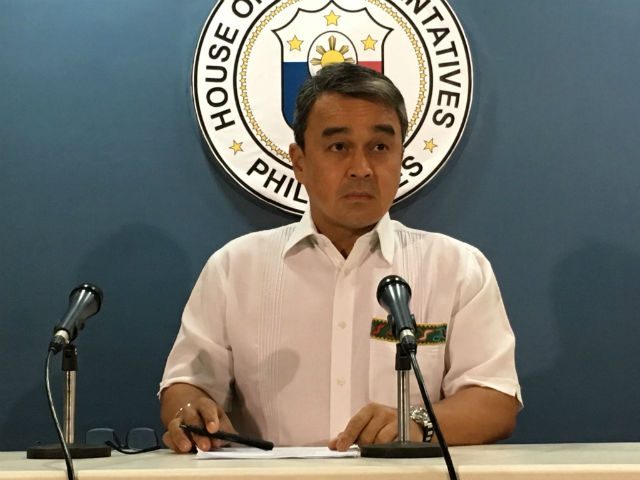SUMMARY
This is AI generated summarization, which may have errors. For context, always refer to the full article.

MANILA, Philippines – The Philippines’ bloody war against drugs can serve as a model for other member-countries of the Association of Southeast Asian Nations (ASEAN), said Surigao del Norte 2nd District Representative Robert Ace Barbers.
The lawmaker made the statement on Monday, July 3, two days before the Philippines hosts the ASEAN-Interparliamentary Assembly (AIPA) 13th Meeting of the Fact-Finding Committee to Combat the Drug Menace (AIFOCOM). Speaker Pantaleon Alvarez is the AIPA president.
“Yes, I think so,” said Barbers when asked if the drug war, which has claimed the lives of more than 7,000 people, can be considered a model to combat drugs.
The lawmaker acknowledged that human rights violations are being committed in the name of the drug war, but he said this is not President Rodrigo Duterte’s fault. Instead, he pointed to the police. (READ: What happens when police get basic understanding of drug addiction?)
“Well, of course we cannot discount the fact that there are human rights violations. And these are perpetuated by some corrupt officials of the law enforcement agencies. Of course there are killings there, the human rights violations [are] definitely not coming from a direct order coming from the President,” said Barbers.
“This is probably the result of some eager beaver PNP (Philippine National Police) officers running after all these drug lords and drug pushers,” added the chairperson of the House committee on dangerous drugs.
Barbers argued the public should focus on the fact that Duterte had previously named narco politicians, generals, and judges, even threatening to kill mayors linked to drugs if they refuse to resign.
Barbers also cited the various drug labs raided by the government in the past months.
ASEAN lawmakers are expected to share information on how to effectively address the drug menace in the whole region during the AIFOCOM to be held from July 5 to 6 at the Conrad Manila hotel.
They will be approving two resolutions, with the first focused on acknowledging the urgency to forge an “inclusive partnership” towards a drug-free ASEAN community. The second resolution, meanwhile, aims to turn the AIFOCOM into the AIPA Advisory Council on Dangerous Drugs.
‘Aggressive’ drug campaign
Barbers said the House contingent to the AIFOCOM would advise their ASEAN counterparts to be more “aggressive” in their respective anti-drug campaigns.
“Well, I’m not going to advise them to kill if needed but, what perhaps I will advise them is that to be aggressive and bold and brazen in the fight against drugs,” said Barbers.
“You know, the enemy here is not an ordinary enemy. They will kill you. They are more aggressive than any law enforcement agency in the country. So we have to fight them head-on. And by doing so, we might be able to see some achievements and accomplishments along that line,” he added.
The Duterte administration, however, has been repeatedly criticized locally and internationally for disregarding human rights in its fight against drugs. (READ: Drug addiction is a health problem. Somebody please tell the President.)
But for Barbers, Duterte is combating the drug problem’s other aspects by institutionalizing socioeconomic programs.
“One, the President as you clearly see, has been implementing some pro-poor programs. In fact, nilibre niya na nga ang mga eskuwelahan ng ating mga kababayan, sa lahat ng SUCs. Nagbibigay naman tayo ng kagaya ng conditional cash transfer ng previous administration that we still continue (In fact, state colleges and universities are offering free tuition. We still continued the conditional cash transfer program of the previous administration),” said Barbers.
“Because this is not just a health issue, this is more than a health issue. There is corruption there, there’s poverty there, there’s health there, and all these barrage of social [and] economic problems that create this bigger problem of drugs. So, and I think… the President of this administration has been addressing that head-on.” – Rappler.com
Add a comment
How does this make you feel?
There are no comments yet. Add your comment to start the conversation.